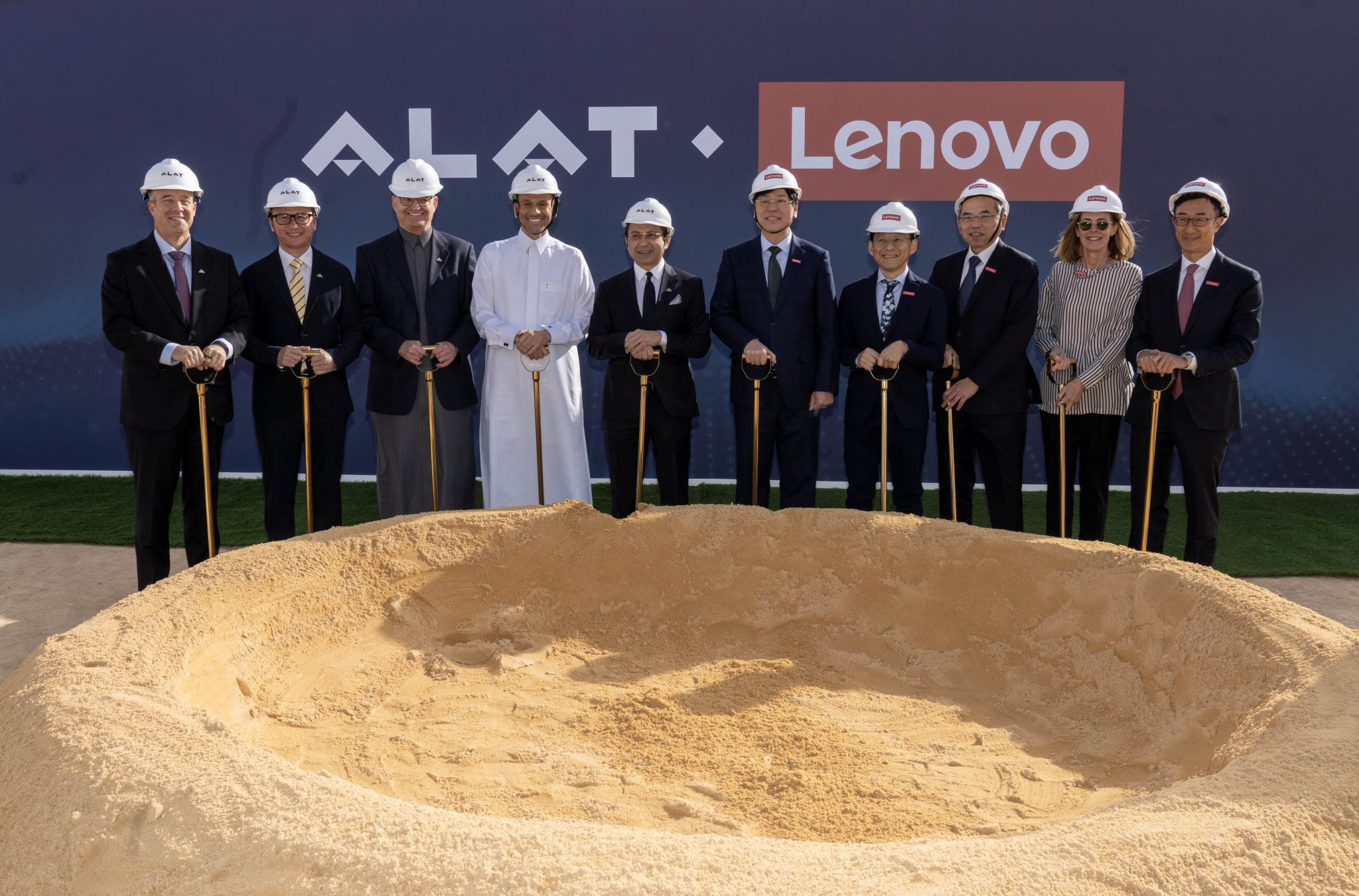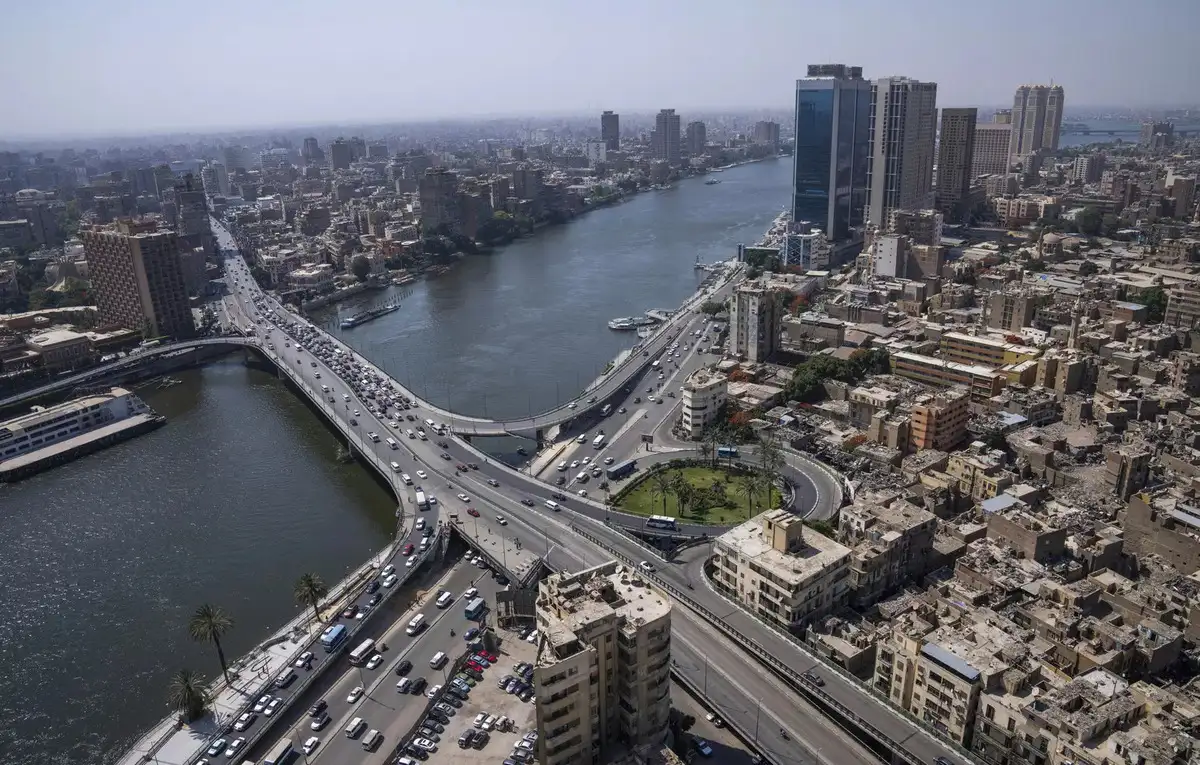Following the establishment of a factory by Lenovo in Riyadh through a $1 billion partnership with Alat, a company affiliated with the Public Investment Fund, the project has now entered its active execution phase.
Production is scheduled to begin in 2026 and will see millions of desktop and laptop computers and servers carrying the “Made in Saudi” label being manufactured, coinciding with Saudi Arabia’s efforts to double non-oil industrial exports to $149 billion by 2030.
The Lenovo-Alat collaboration alone is expected to contribute as much as $10 billion to the Kingdom’s non-oil GDP by the end of this decade.
Officials from Lenovo’s Chinese headquarters said that the project goes beyond a purely financial investment. It is intended to become a platform for digital innovation, artificial-intelligence applications and the integration of local start-ups into Lenovo’s global innovation chains, thereby enabling the Kingdom to benefit from the company’s international manufacturing and advanced-technology expertise.
They added that the project supports the aims of Saudi Vision 2030 by boosting domestic manufacturing, doubling non-oil industrial exports and generating direct and indirect employment for Saudi youth, alongside upskilling them in AI and advanced computing.
The initiative is among the most prominent examples of Saudi Arabia’s shift towards becoming a regional hub for advanced technologies and artificial intelligence, with a focus on integrating multinational companies into the local innovation ecosystem and localizing high-tech industries under global sustainability standards.
Lawrence Yu, Head of Lenovo’s Middle East & Africa regional headquarters, said that the partnership with Alat “marks a turning point from dependence on imported technologies to developing local capabilities.”
He noted the project will transform the Kingdom into “a regional base for advanced manufacturing in computing and artificial intelligence.”
A State-of-the-Art Facility
Yu explained that the new facility in Riyadh has been designed according to the highest global sustainability standards. Production is set to commence in 2026, manufacturing millions of “Made in Saudi” desktop and laptop computers and servers, supporting both local and regional demand and positioning Saudi Arabia at the forefront of digital transformation in the region.
He added that the project will provide approximately 15,000 direct jobs and 45,000 indirect jobs, as well as support the development of local skills in AI and advanced digital technologies.
On his part, Giovanni Di Filippo, Vice President and General Manager for Lenovo Saudi Arabia, described the project as “a strategic step to reinforce the company’s global footprint and diversify its manufacturing geography.”
He explained that Lenovo will transfer part of its technology, manufacturing capabilities and supply-chains to the Kingdom, enabling local start-ups such as Novo Genomics and Nybl Global to be integrated into the company’s global innovation system and scale internationally.
Di Filippo noted that the project aligns with Vision 2030’s targets to enhance local manufacturing and increase the industrial sector’s contribution to GDP to more than $238 billion, and to double non-oil industrial exports to $149 billion by 2030. He emphasized that the Lenovo-Alat partnership alone will contribute up to $10 billion to the non-oil GDP by the end of the current decade.
The officials pointed out that this initiative marks a clear shift in the Kingdom’s strategy from reliance on imported technologies to building local capabilities. It reinforces Saudi Arabia’s role as a regional hub for AI and advanced computing, and supports the private sector and innovation across a variety of fields, including major digital and cultural events such as esports and Expo 2030.
Yu affirmed Lenovo’s commitment to supporting local entrepreneurs and equipping Saudi youth with future skills in advanced manufacturing and AI. He said the company is working with Alat on programs to develop the Saudi workforce, enabling them to lead the digital transformation and contribute to the knowledge-economy, in line with the Kingdom’s commitment to investing in human capital and innovation.
Di Filippo added that the project is not simply about technical manufacturing, but about localizing multinational companies and integrating them into Saudi Arabia’s innovation ecosystem.
He said the partnership with Alat ensures the benefit of extensive regional networks and deep local market experience, making the project a driver of innovation and industrial growth in the Kingdom.




